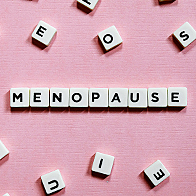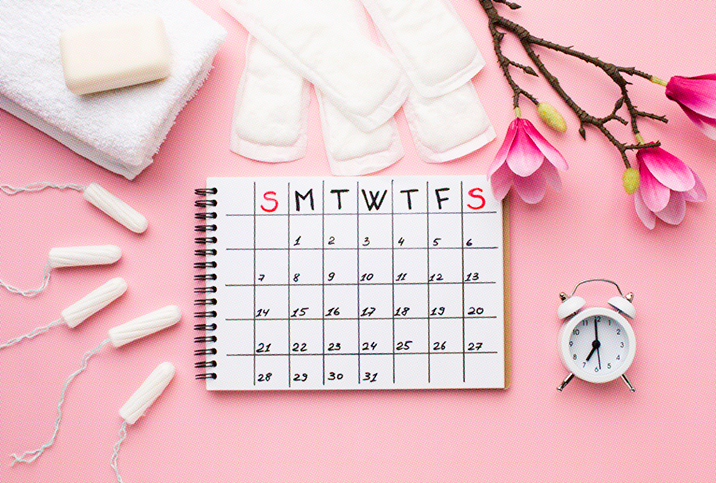Some Perimenopausal Symptoms Can Be Self-Treated

When Ellen Albertson experienced her first hot flash a decade ago, she was unprepared. First, her face reddened. Then she felt overheated to the point where she needed to take off some of her clothes.
"I don't think I knew what it was," she said. "The onset was gradual. It didn't hit me like 'boom' in one day. I had the sensation of being hot then cold, and it occurred to me within a short amount of time that this must be menopause."
Today, at 59 years old, Albertson considers herself a survivor. "I've gotten through it alive," she said.
Hot flashes and their impact on sleep
Like most people who experience menopause, Albertson's midlife experience started with symptoms of perimenopause, the transitional phase.
"I was experiencing depression and I would wake up drenched in sweat," she said. "I literally would have to go get a towel to sleep under because everything was soaked."
Albertson, a Vermont resident, is among the estimated 85 percent of postmenopausal women who experience menopause-related symptoms during their lifetime, according to a study published in BMC Women's Health. Common symptoms include irregular periods, vaginal dryness, mood changes, weight fluctuations, thinning hair and, of course, hot flashes, an uncomfortable experience that impacts 75 percent of women, according to John Hopkins Medicine.
"Many women find scarves, loose jackets, sweater sets and camisoles to be indispensable accessories during hot flashes. They are easy to take on and off when you need to in any social setting," said Nanette Santoro, M.D., professor and E. Stewart Taylor chair of the OB-GYN department at the University of Colorado School of Medicine.
Unfortunately, these hot flashes don't stop when the sun goes down, which can lead to problems sleeping.
"Hot flashes are a well-known way to wreak havoc on sleep, causing women to wake up sweating and then having a hard time falling back asleep," Santoro added. "There are behavioral apps and ways to self-monitor sleep that can help a woman track her progress and let her know if she's getting into trouble."
CBT-i Coach is a free cognitive behavioral therapy app for insomnia, which Santoro recommends. In addition to CBT, research indicates hypnotherapy may be effective for some women.
"Women who don't get enough sleep are more prone to gain weight and have mood problems during menopause, and their long-term risks of cardiometabolic disease goes up," Santoro explained.
As reported by the English nonprofit Women's Health Concern, the percentage of women experiencing sleep disturbance during menopause ranges from 28 percent to 63 percent.
"The way I treated the night sweats was by either sleeping naked or in clothing that would wick away some of the moisture and just accepting it," Albertson said.
Dealing with vaginal dryness
Another common symptom of menopause is vaginal dryness, according to Stephanie Faubion, M.D., medical director with the North American Menopause Society (NAMS) and a physician at the Women's Health Clinic at Mayo Clinic.
Harvard Medical School found 50 percent of postmenopausal women experience vaginal dryness and also irritation or pain during sexual intercourse.
"There are some women who are uncomfortable sitting, putting on panties or wiping after they urinate because they are so dry," Faubion said.
She recommended lubricants and moisturizers, which do not require a prescription. Lubricants can be used during sex, while moisturizers and creams can be used on a regular basis every one to three days, Faubion explained.
"If that doesn't work, then there are plenty of safe and effective low-dose hormonal therapies that are prescribed by your local provider," she said.
Gaining weight during this time is common
Weight gain during the menopausal transition is something many women experience. According to a 1991 article published in JAMA Internal Medicine, the average weight gain for the 485 perimenopausal women sampled was about 5 pounds over a three-year period, with 20 percent of the women gaining 10 pounds or more during this time period. This increase was attributed to a drop in estrogen and a sedentary lifestyle.
Additionally, a 2019 meta-analysis of more than 1 million individuals published in the American Journal of Obstetrics and Gynecology found fat mass significantly increased between premenopausal and postmenopausal women across most measures, including body mass index (BMI), bodyweight, body fat percentage, waist and hip circumference, waist-hip ratio, visceral fat and trunk fat percentage.
"Whereas weight gain per se cannot be attributed to the menopause transition, the change in the hormonal milieu at menopause is associated with an increase in total body fat and an increase in abdominal fat," noted the authors of a 2012 article published in Climacteric, the journal of the International Menopause Society.
Managing your weight through exercise, a healthy diet and stress reduction can alleviate symptoms and help prevent serious conditions.
In short, the reasons for weight gain during perimenopause are complex, but one aspect is clear: Managing your weight through exercise, a healthy diet and stress reduction can alleviate symptoms and help prevent serious conditions, such as heart disease and cancer.
"I exercise regularly to reduce stress," said Albertson, who founded The Midlife Whisperer, where she works as a coach and dietitian helping other women through menopause and beyond. "What you eat is important because it has an impact on your menopausal symptoms. Eating a whole foods, plant-based diet can be helpful."
In her own journey, Albertson went so far as to minimize alcohol and eliminate caffeine while adding yoga and meditation to her routine.
"I noticed that I had a little bit less hot flashes, and my sleep was certainly improved," she said. "My energy levels were better, as well, particularly with the right amount of sleep."
She also suggested adding foods with phytoestrogens to your diet. These products, such as soybeans, tofu, tempeh, flax seeds and sesame seeds, include plant-derived compounds that mimic the effects of estrogen, Albertson explained. While some research does suggest that phytoestrogens can reduce menopausal symptoms, phytoestrogens are also considered endocrine disrupters and can possibly cause adverse health reactions.
The menopausal transition is (nearly) universal
While this time of your life can sometimes feel isolating, it's important to remember you are not alone. As disruptive as the symptoms can be, treatments are available.
For some women, natural treatments and lifestyle changes may not be enough. Talk to your doctor about your experience and they can advise a treatment plan just for you.




















